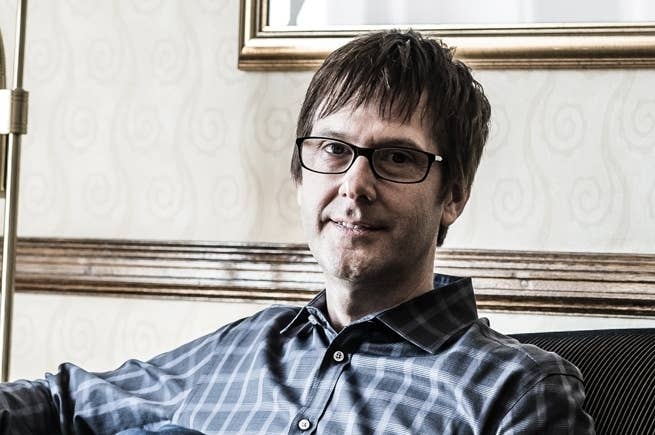Cerny, Jarvis see a continued gaming "renaissance"
Eugene Jarvis and Mark Cerny talk about the state of the industry, the maturity of the audience and the big VR push
In an interesting discussion this morning at the DICE Summit, Zynga's Mark Turmell moderated a panel with Sony's Mark Cerny and arcade veteran Eugene Jarvis (Defender), currently CEO of Raw Thrills. The crux of the conversation was whether or not the industry is really in the midst of a renaissance. The short answer: yes.
Cerny pointed out the increasing breadth of content we're all seeing in the business. Not only do we have AAA experiences like Assassin's Creed, Call of Duty etc., but there's also a wave of creativity like never before coming from indies with titles like Resogun, Don't Starve and more. "Our audience has grown so sophisticated that we had a million downloads of Don't Starve," noted Cerny. "It's not an easy game to play... it's all about delayed gratification... it speaks to a never before seen maturity of the audience."
Indeed, Jarvis agreed that it feels like we're seeing new innovations in gaming everyday, but from a business standpoint, things ironically may have been easier in the old days ('80s and '90s). Monetization is a big issue today, but with arcades, Jarvis noted that the time spent per quarter was the ultimate monetization. "We killed you off in 37 seconds in Defender. That was monetization!" exclaimed Jarvis. Cerny added that for the amount of gameplay you got per quarter in the arcade, those old games were probably some of the most expensive ever for gamers.

The older days also generally yielded better success rates for developers. Cerny pointed out that for any particular game made, the developer may have had 1 or 2 competitors, and so ultimately the success rate was probably 1 in 2 or 1 in 3, whereas now the marketplace is flooded in a number of genres, and it's harder to standout.
"If you're not in the 1 percent you're in the 99 percent, and it makes the arcade business look really good," said Jarvis.
That said, Jarvis is a huge proponent of the virtual arcade of sorts that's been created with the App Store: "The arcade was the birthplace of the video game... now everyone has an arcade in their pocket. Dude, we won... we f***ing won!" Jarvis is a big believer in digital distribution and he's happy that the hardware is out of the way. He views the App Store as one of the biggest innovations in the last 40 years. "The most successful business model ever was created by the IRS, take 30 percent of everything. Steve Jobs copied that," he said.
For Cerny, the biggest innovation, at least through the lens of the console world, was the optical disc. It allowed for much bigger games, and it also saved game companies lots of money compared to the costs associated with cartridges. "Ken Kutaragi got us onto the CD, it was a big accomplishment... If we spend $50 million on a game, we'd need to sell 50 million cartridges [today]," Cerny said.
Both Jarvis and Cerny agreed that the potential of virtual reality like Oculus Rift could be huge in the coming years. Jarvis believes it could help revive the arcade scene. Cerny added that it could be "significant going forward," but he also underscored the importance of digital distribution "even for large console titles." Xbox One and PS4 both offer day one digital downloads for full console games now, but as broadband infrastructures around the world improve, this is clearly an area of growth for the business.
Even with the rise of digital, you still need a box to deliver the content, and while Cerny was asked once again if the PS4 could be the last ever console, he quickly snapped back, "We're two months in and you're asking me about the next gen?" Cerny reiterated that he thinks the console business "looks pretty solid" and that there are lots of synergies with consoles across the business.

